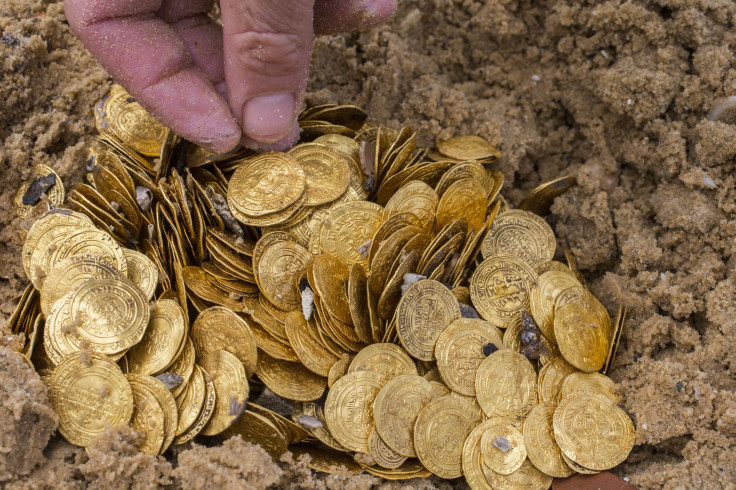Nazi-Era Gold Coins In Germany Worth 45,000 Euros Found By Novice Archaeologist

A novice archeologist stumbled upon a hidden treasure last October when he discovered 217 Nazi-era gold coins, according to a new report. The coins were estimated to be worth around 45,000 euros, or more than $49,000.
Florian Bautsch, a certified metal detectorist, found the coins at old burial mounds in Lüneburg, Germany, a town located south of Hamburg, the Local reported. At first, he discovered only nine gold coins. However, after he got in touch with local archeologists, they performed a two-week evacuation and uncovered 207 more gold coins. They also found a pasteboard with two seals displaying the swastika, imperial eagle and a stamp that read “Reichsbank Berlin 244.”
Henning Habmann, a Lower Saxony state archeologist, believed the coins would have been produced as limited editions to be used as investment pieces for banks and private investors. Edgar Ring, a Lüneburg archeologist, said he was certain the coins belonged to Reichsbank, the Nazi-era central bank, and that they had been stolen.
Most of the coins were minted between 1850 and 1910, with the oldest coin dating to 1831. A chemical analysis showed the coins were most likely packaged between 1940 and 1950. They weighed 6.45 grams (0.2 ounces), with an overall weight of 1.4 kilograms (3 pounds) and had a diameter of 21 millimeters (0.8 inches). Out of all the coins, 128 had Belgian stamps, 74 were from France, 12 were from Italy, and three had Austro-Hungarian stamps.
Although they were estimated to be worth around 45,000 euros, Bautsch was awarded only 2,500 euros for his find, but said the most important thing to him was furthering scientific knowledge. The coins were displayed in the Lüneburg Museum on Tuesday.
There have been similar coin findings in the past, but almost all of them lacked archeological context and crucial elements that would determine their origin. In February 2014, another amateur archeologist found a trove of gold and silver in a German forest that dated to Roman times.
© Copyright IBTimes 2024. All rights reserved.






















